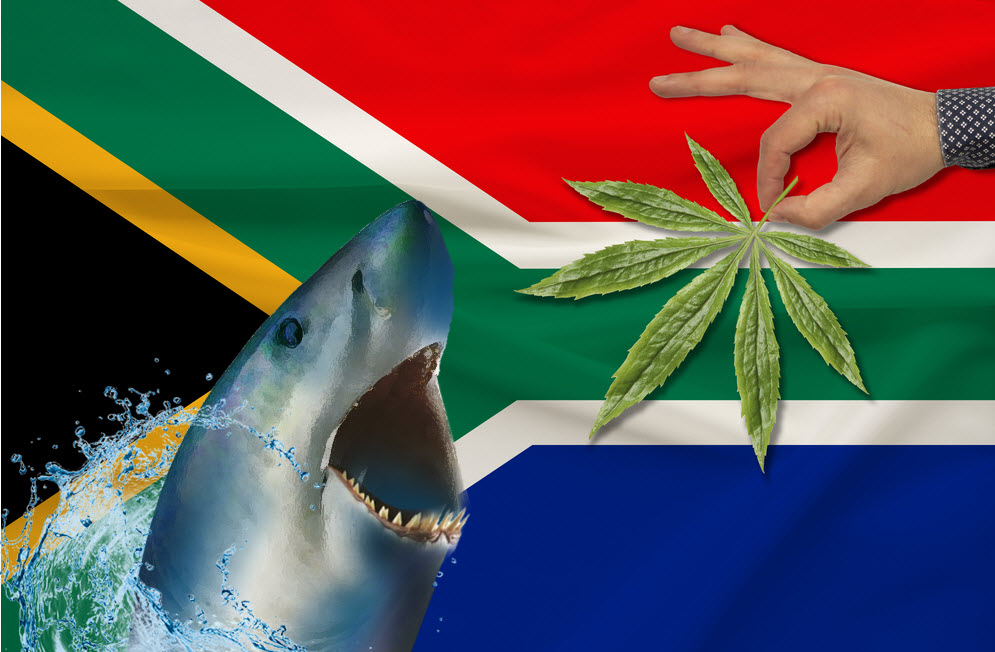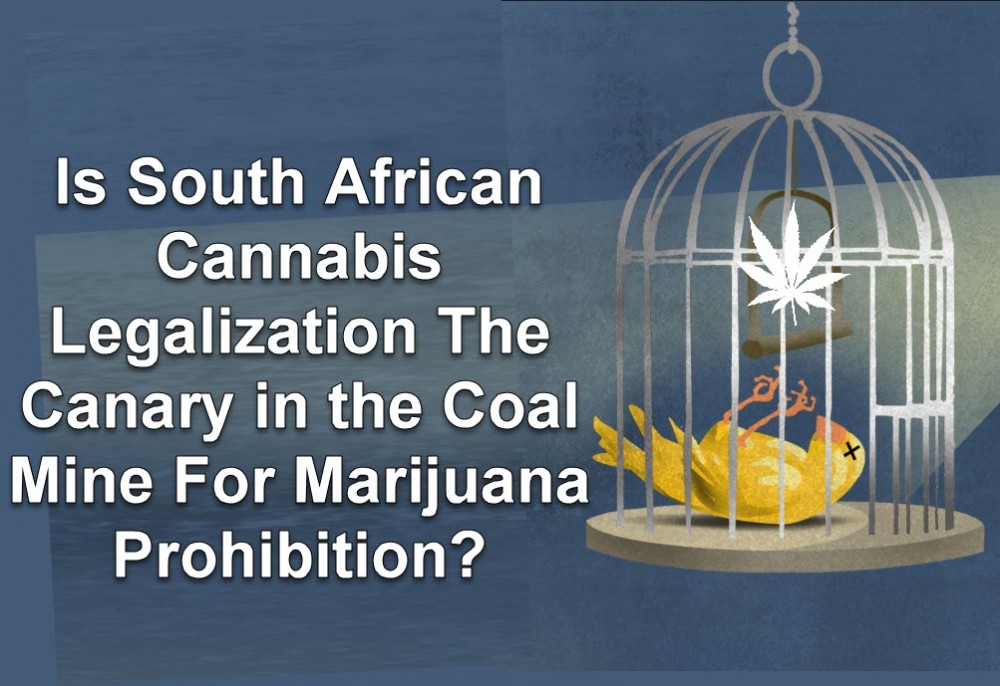
Swimming with Weed Sharks – Corporate cannabis is splitting the South African marijuana market
While countries and states are taking advantage of the new cannabis rush through legalization, South Africa is also using all potential it has to offer. The South African government will unveil its cannabis master plan that will enable it to be grown in the multi-billion dollar industry.
The government’s plans have sparked great interest in cannabis entrepreneurs, which has led to mergers and acquisitions within the South African cannabis corporate sector.
South Africa’s master plan
The government’s plan provides for the creation of new programs for hemp strains and indigenous Dagga * breeders within the cannabis value chain. The master plan is slated to kick off in October 2021, when the country begins rolling out supervised permits for cannabis production.
Expanding the acreage of the cannabis plant, which enables cannabis companies to service South African growers, and industrializing cannabis production are also part of the master plan.
Before that moment, the South African cannabis market, like most African countries, operated underground, meaning the country was not fully realizing the potential of the cannabis economy.
Fusion deals galore
Once South Africa’s master plan was in motion, various fusion cannabis deals began among industry players. For example, in May Labat Africa offered RAR 11.25 million ($ 816,000) to acquire a 75% stake in Leaf Botanicals.
Now Leaf Botanicals is one of the local companies with a cannabis production license issued by the South African Health Products Regulatory Agency.
Leaf Botanicals also holds a license from the South African Health Authority to make dagga for the country’s medical community. With this company taking the lead in cannabis businesses, it can be assumed that other companies will do the same.
One of the best ways countries can maximize the cannabis economy is to have companies willing to invest in the cannabis sector. South Africa is already sending the signal to its cannabis corporate world that it is ready to move from underground operations to mainstream investments.
The motives for corporate mergers with cannabis
The South African cannabis market is still inexpensive and virgin compared to other established cannabis markets such as those available in some American states. A company like Labat targeting the cannabis market is understandable.
So far, no cannabis stocks have been registered on the Johannesburg Sticks Exchange (which is the largest exchange in Africa). This realization differs from mature exchanges like the Toronto Stocks Exchange. The Toronto Stock Exchange currently has ten publicly traded stocks dealing with cannabis.
Hence, Labat in South Africa is seeking an early change of company knowing that there will be a deluge of cannabis stocks on the South African stock exchange.
Currently, South Africa’s startups are cheaper than American and Canadian cannabis companies in terms of market capitalization. This realization means that companies with a lot of money but little cannabis business experience can acquire cannabis stocks in South Africa.
The entry level for companies to get into this new master plan will be at a lower price (for now), leaving the operation to the specialized startups. Your portfolio will grow and you will have a head start in maximizing and expanding your cannabis income stream.
The cannabis startup potential
So the question is simple: will the proposed startups be successful with this new move from South Africa? Well Leaf Botanicals, which Labat bought for 816,000 with a 75% stake in a specialized cannabis startup, shows the viability of the startups.
Interestingly, the 75% stake compared to North American or EU cannabis companies is positively shocking. You can’t buy a growing and highly accelerated cannabis startup for that price. In South Africa, however, this is possible because the country is ready to take the sources of income from cannabis seriously.
Corporate investors recognize that the underground market is on the verge of collapse and are poised to buy up the new South African cannabis business opportunities. They prefer to invest in South African startups and companies before considering Japanese, Canadian, Dutch or American companies.
But the tussle over the South African cannabis market isn’t just affecting domestic and local players. South African investors are realizing that foreign players will come into the market to invest.
An example that confirms this international interest is Labat’s partnership with the American company Ace in May. The aim of the partnership was to manufacture and distribute smokable CBD in South Africa. They also wanted to set a new trend by having foreign firms enter the South African market while handing control over to local players.
High profile investments in the South African cannabis industry (Highlands Investments)
The high profile merger deals in the South African cannabis sector show that the company’s master plan is on the move. There are several high profile deals in the South African cannabis market, but the agreement between Highlands Investments (called Canopy Growth) and Gold Leaf is high on the list.
Highlands Investment is located in neighboring Lesotho, while Gold Leaf is one of the pioneering cannabis brands in South Africa. The merger is valued at R650 million ($ 45 million) which is a lot of money.
This deal is also the largest vertically integrated cannabis company in Africa. The Highlands investors take home 35% of the shares and Gold Leaf with 65% the more significant stake.
First, Lesotho, a country that Highlands operates from, legalized cannabis cultivation quickly before the South African master plan. Lesotho received the license for its breeders to export medical cannabis to other countries. So when South Africa’s new master plan is in the works, it will try to capture the Lesotho market.
Bottom line
Cannabis has a bright future and will play a vital role in any nation’s economic boom. The South African government has uncovered the massive financial pockets and their potential and created the master plan to expedite the process.
Investors want to explore the Lesotho and South Africa market on a solid basis. South Africa is doing its best to attract these foreign investors who work with local actors. If South Africa gets its cannabis market right with its master plan, it will set a precedent for others to follow.
* The term “dagga” is used in some parts of southern Africa to describe cannabis.
MORE ABOUT MARIJUANA IN SOUTH AFRICA READ THIS …

IS THE SOUTH AFRICAN LEGALIZATION OF THE CARNARY IN THE COAL MINE?

Post a comment: